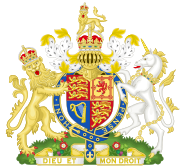
In trust law, a constructive trust is an equitable remedy imposed by a court to benefit a party that has been wrongfully deprived of its rights due to either a person obtaining or holding a legal property right which they should not possess due to unjust enrichment or interference, or due to a breach of fiduciary duty, which is intercausative with unjust enrichment and/or property interference. It is a type of implied trust.
Regina v. Special Adjudicator ex parte Ullah, also known as Do v. Secretary of State for the Home Department[2004] UKHL 26 on appeal from [2002] EWCA Civ 1856, was a legal case in the United Kingdom. This was a joint decision, meaning two cases were heard at the same time, so the case may be cited as either of the case titles.

David Edmond Neuberger, Baron Neuberger of Abbotsbury is an English judge. He served as President of the Supreme Court of the United Kingdom from 2012 to 2017. He was a Lord of Appeal in Ordinary until the House of Lords' judicial functions were transferred to the new Supreme Court in 2009, at which point he became Master of the Rolls, the second most senior judge in England and Wales. Neuberger was appointed to the Supreme Court, as its President, in 2012. He now serves as a Non-Permanent Judge of the Hong Kong Court of Final Appeal and the Chair of the High-Level Panel of Legal Experts on Media Freedom.

English trust law concerns the protection of assets, usually when they are held by one party for another's benefit. Trusts were a creation of the English law of property and obligations, and share a subsequent history with countries across the Commonwealth and the United States. Trusts developed when claimants in property disputes were dissatisfied with the common law courts and petitioned the King for a just and equitable result. On the King's behalf, the Lord Chancellor developed a parallel justice system in the Court of Chancery, commonly referred as equity. Historically, trusts have mostly been used where people have left money in a will, or created family settlements, charities, or some types of business venture. After the Judicature Act 1873, England's courts of equity and common law were merged, and equitable principles took precedence. Today, trusts play an important role in financial investment, especially in unit trusts and in pension trusts. Although people are generally free to set the terms of trusts in any way they like, there is a growing body of legislation to protect beneficiaries or regulate the trust relationship, including the Trustee Act 1925, Trustee Investments Act 1961, Recognition of Trusts Act 1987, Financial Services and Markets Act 2000, Trustee Act 2000, Pensions Act 1995, Pensions Act 2004 and Charities Act 2011.

English contract law is the body of law that regulates legally binding agreements in England and Wales. With its roots in the lex mercatoria and the activism of the judiciary during the industrial revolution, it shares a heritage with countries across the Commonwealth, from membership in the European Union, continuing membership in Unidroit, and to a lesser extent the United States. Any agreement that is enforceable in court is a contract. A contract is a voluntary obligation, contrasting to the duty to not violate others rights in tort or unjust enrichment. English law places a high value on ensuring people have truly consented to the deals that bind them in court, so long as they comply with statutory and human rights.

Lloyds Bank plc v Rosset[1990] UKHL 14 is an English land law, trusts law and matrimonial law case. It specifically deals with the translation into money of physical contributions from a cohabitee or spouse, under which its principles have been largely superseded.

Gissing v Gissing [1970] UKHL 3 is an English land law and trust law case dealing with constructive trusts arising in relationships between married couple. It may no longer represent good law, since the decisions of Stack v Dowden and Jones v Kernott.

Paul v Constance[1976] EWCA Civ 2 / [1977] 1 W.L.R. 527 is an English trust law case. It sets out what will be sufficient to establish that someone has intended to create a trust, the first of the "three certainties". It is necessary that a settlor's "words and actions ... show a clear intention to dispose of property ... so that someone else acquires a beneficial interest."

Williams & Glyn's Bank v Boland [1980] is a House of Lords judgment in English land and trusts law on an occupier's potentially overriding interests in a home.

Re Vandervell Trustees Ltd [1974] EWCA Civ 7 is a leading English trusts law case, concerning resulting trusts.

English land law is the law of real property in England and Wales. Because of its heavy historical and social significance, land is usually seen as the most important part of English property law. Ownership of land has its roots in the feudal system established by William the Conqueror after 1066, but is now mostly registered and sold on the real estate market. The modern law's sources derive from the old courts of common law and equity, and legislation such as the Law of Property Act 1925, the Settled Land Act 1925, the Land Charges Act 1972, the Trusts of Land and Appointment of Trustees Act 1996 and the Land Registration Act 2002. At its core, English land law involves the acquisition, content and priority of rights and obligations among people with interests in land. Having a property right in land, as opposed to a contractual or some other personal right, matters because it creates priority over other people's claims, particularly if the land is sold on, the possessor goes insolvent, or when claiming various remedies, like specific performance, in court.

Jones v Kernott [2011] UKSC 53 is a decision by the UK Supreme Court concerning the beneficial entitlement to a co-owned family home under a constructive trust. The court ruled there was a 90:10 split of ownership in favour of the main child-caring partner who contributed 80% of the equity to the home in which she lived. The non-resident partner had also ceased to pay bills and maintenance for the children for a considerable time.
Bristol & West Building Society v Henning [1985] EWCA Civ 6 is an English land law case that holds a person can consent to give up the right to an overriding interest in land, that will bind third parties, such as banks, that purchase a property. Although dealing with unregistered land, it is equally applicable in the case of registered land and now falls under the Land Registration Act 2002.

Abbott v Abbott [2007] UKPC 53 was advice from the Privy Council on a case from the Court of Appeal of Antigua and Barbuda, that is relevant for English land law and concerns the nature of constructive trusts.

Sinclair Investments (UK) Ltd v Versailles Trade Finance Ltd[2011] EWCA Civ 347 is an English trusts law case, concerning constructive trusts. Sinclair was partially overruled in July 2014 by the UK Supreme Court in FHR European Ventures LLP v Cedar Capital Partners LLC.

Cuckmere Brick Co v Mutual Finance[1971] EWCA Civ 9 is an English tort law case, establishing the lender must publish/promote the materially beneficial key, intrinsic facts as to land in mortgage repossession sales. As it affects the duty of mortgagees, to that extent it can be considered within the periphery of English land law also.

Prest v Petrodel Resources Ltd[2013] UKSC 34, [2013] 2 AC 415 is a leading UK company law decision of the UK Supreme Court concerning the nature of the doctrine of piercing the corporate veil, resulting trusts and equitable proprietary remedies in the context of English family law.

Geary v Rankine[2012] EWCA Civ 555 is an English land law case, concerning constructive trusts, and the establishment of a beneficial interest in an enterprise between a business owner and his or her lover and co-worker. It specifically concerned a case where the latter person received no formal wages and had entered no formal ownership nor partnership agreement nor directly or indirectly contributed in money to the purchase price.

FHR European Ventures LLP v Cedar Capital Partners LLC[2014] UKSC 45 is a landmark decision of the United Kingdom Supreme Court which holds that a bribe or secret commission accepted by an agent is held on trust for his principal. In so ruling, the Court partially overruled Sinclair Investments (UK) Ltd v Versailles Trade Finance Ltd in favour of The Attorney General for Hong Kong v Reid (UKPC), a ruling from the Judicial Committee of the Privy Council on appeal from New Zealand.

Akers v Samba Financial Group[2017] UKSC 6, [2017] AC 424 is a judicial decision of the Supreme Court of the United Kingdom relating to the conflict of laws, trust law and insolvency law.





















